Regular readers of VeloVeritas will have noticed that we’ve not been posting much here for a while, the explanation is simple; it’s been very hard to find the motivation following our colleague and friend Ed Hood’s devastating stroke last year. We don’t expect Ed will make it back into our bunch so we started a GoFundMe page to help him with his future. Please read the article and consider donating.
Ed and I have worked on this site for a long time, the first article was published in June 2006 – that’s nearly 18 years of collaboration, meetings, planning, travelling far and wide, sitting roadside at time trials with stopwatches and cameras at the ready, spending many hours in hire cars talking bikes and nonsense while chasing WorldTour races, testing equipment, and chatting to current and ex-riders, mechanics, coaches, team owners… the result is over 2,700 published articles which is a fair old body of work.
Ed is very keen that – despite him being unable to contribute at the moment – VeloVeritas continues and so we start the 2024 season with a renewed resolve and enthusiasm. To kick things off we present Al Hamilton’s fantastic interview with our good friend and Astana signing Michael Mørkøv, whose renowned leadout skills may well result in a record-breaking Tour de France for Mark Cavendish.
Martin
* * *
It has been said by many people that Michael Mørkøv is the best lead-out man in the peloton and if Mark Cavendish thinks so, then it must be true.
Michael is back at Cav’s side to help him take his 35th, history making Tour de France stage win. We caught up with the flying Dane before he flew to the Tour Colombia.
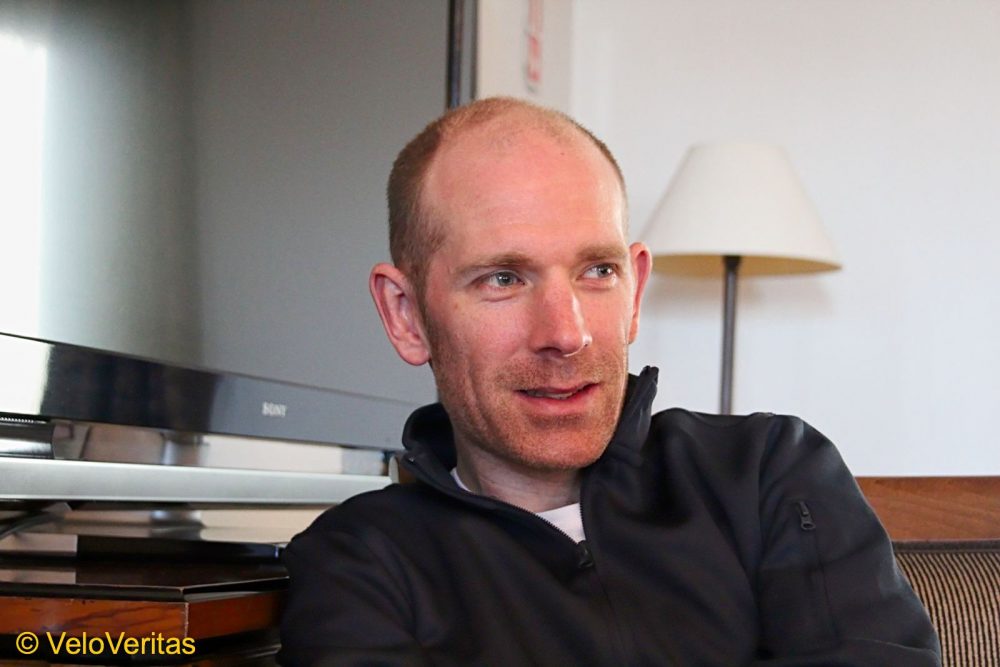
Before we started the interview, Michael wanted to know how Ed Hood was after his stroke last year. Michael and Ed go way back and apart from the many interviews Ed worked with Michael at the ‘Six Days’, ‘running’ for him and doing all those jobs that a rider needs during those fast nights on the indoor boards.
“Ed is my very good friend and also, I did many interviews with PezCyclingNews and VeloVeritas in the past, and that was always with Ed.
“He always did it with such such big respect and he was always very polite towards me but it was always a bit weird because I worked really close with him in the Six Days, so for me he was really a friend but instead he kept a professional distance when doing the interviews.
“Of course I’m really sad to know what has happened to him and I will miss talking with him because of all the journalists he is probably the one who knows me the best, who knows my background.”
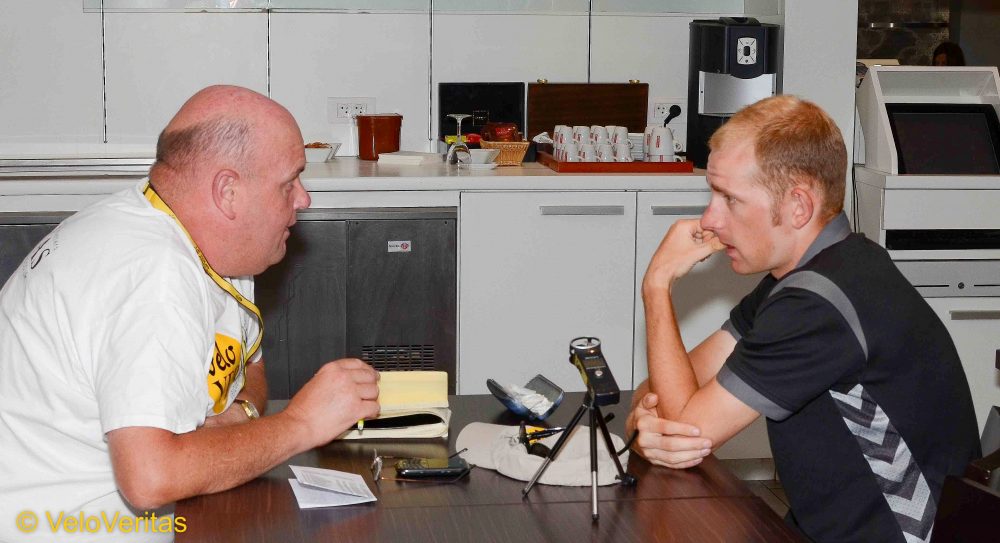
You are going to the Tour Columbia with ‘Cav’. What’s the reasoning?
“First of all it is to setup the season so we go there with the idea of doing an altitude training camp, because this should be a pretty good place to be at altitude where we have lots of flat roads to train on, which is important for us.
“And then we also have the chance to ride the Tour of Colombia, which I think will be a nice race to get started with and hopefully we can take a stage win there and that’s pretty much why we go.”
I think some stages are over 2,000 metres?
“Yes, I think one climb is over 3,000 metres high.”
So that’s a bit like forced training as well?
“Yeah, but we are there three weeks before on a training camp, getting used to the altitude, it’s gonna set us up well for the race and especially for the coming months.
“Obviously after that, the UAE Tour is a very important race for us, because the UAE Tour is where all the sprinters are clashing every year now.
“So, you know, these are very different races, but I would say from my point of view, that’s where you have the best prestige races as a sprinter and as a sprint team.”
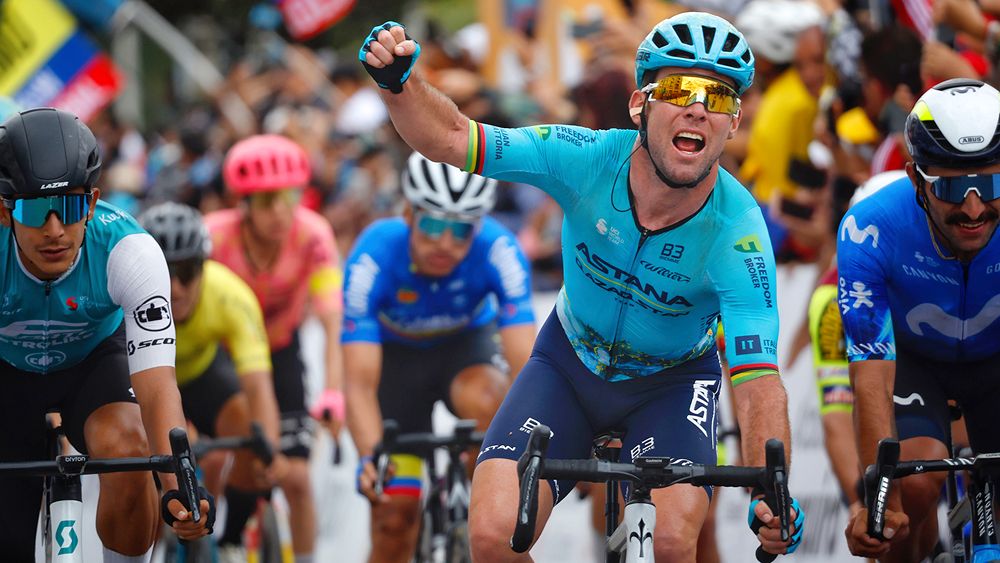
Can you tell me which races you will ride between the UAE Tour and the Tour de France?
“The UAE Tour is very important, then we go to Tirreno and hopefully there will be some sprints there.
“And then we have some of the flat Classics; we do Milano-Torino, Scheldeprijs, De Panne and that’s the spring, but mainly, it’s UAE and Tirreno that are very important to hopefully get some victories.”
What is your last race before the Tour?
“We start again with the Tour of Hungary in May, I think it is, and then we go on altitude training camp again, for three weeks.”
Where would that be?
“In Sierra Nevada. I think at the moment we are still waiting for confirmation of the stages, but I think we might go Swiss, but from year to year it changes a lot.
“Sometimes you have Swiss without any sprints or same with Dauphiné. So sprints are seldom these days.
“Nowadays, there’s many races without any sprints, so because of that, as a sprint team, we have to select our programme really carefully.”
When you’re setting up a sprint, how does that all work? Or how does the mechanics of a sprint lead-out work for you?
“Well, it always depends from race to race.
“Obviously, I expect Colombia to be like a bit lower level kind of racing. So probably there we need to take greater responsibility than we will have to do in the UAE Tour because in UAE I expect there will be probably ten very strong sprint teams.
“So then it’s more about like having the tactic on the day which team we want to follow, maybe we want to take responsibility ourselves, but that also depends on how Mark is feeling, like, how is the form? Do we have the strength to really take it from the front? Or should we stay a bit sheltered and come from the back. So it’s like there’s 1000’s of tactics in a sprint.”
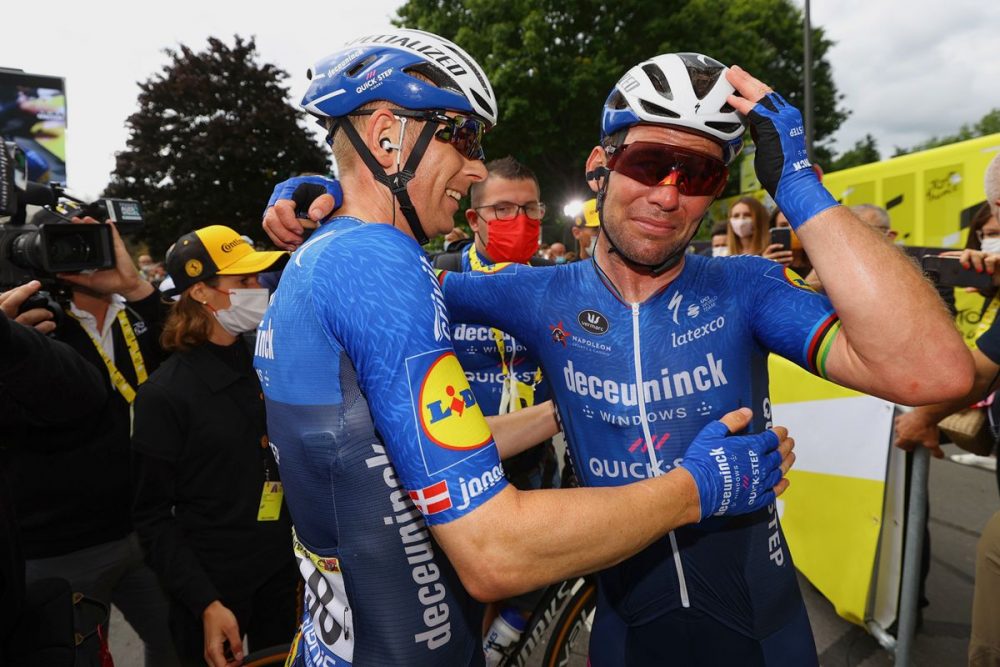
UAE Can be very windy and open.
“Yeah, UAE is always a difficult one because we would be focusing on a sprint, on a sprint stage, but you cannot just sit back and wait for a sprint because you never know because of the cross wind.”
There is going to be a lot of sprinters in the Tour de France this year, would you be watching anyone in particular in the final kilometres?
“Normally I would never watch a sprinter in particular, I would always watch his team – nowadays, it’s not like there’s one sprinter who’s the man to beat, it’s more like the teams.
“We’ve seen in the past, for many races, like Alpecin they often have a very strong line-up. Obviously if you have Van der Poel there to lead-out Jasper Philipsen, you have to be very careful about that because he’s such a strong rider.
“The same with Visma/Lease a Bike, Okay, in the Tour it might be different, but if they have guys like Van Aert, if he’s sprinting or if he’s leading out Kooij or someone, it’s a different game.
“I expect DSM next year with Fabio will also do a proper train. So it’s also like doing races, you’re learning the capacity of each team and how they approach the finishes.
“It’s an awful lot of homework.”
So do you think that because there are less sprint stages/races and there seems to be more sprinters than ever, but less opportunities. So it’s more difficult now than it has ever been to win stages?
“For sure. I will also say that nowadays there is maybe more sprinters, but more sprinters on the same level, more sprinter’s teams on the same level.
“So let’s say in the Tour de France and especially in the UAE Tour, there’s many teams who can do a really good lead-out, many sprinters who have more lead-out guys.
“Lead out guys in the past, let’s say 10 or 15 years ago, sometimes there was one or two teams leading out and other sprinters would kind of follow and have a sprint, but now there’s always a lot of teams who can really take shots and there are more battles and much more can go wrong and sometimes you can just be completely boxed in.
“Worse situations, like in Paris-Nice or the Tour de France where the road can be blocked with 60K to go and if you’re not in your position, you never make the arrival.
“Like we had that in a stage last year in the Tour; basically blocked in the last 30K’s and we never got to contest it.”
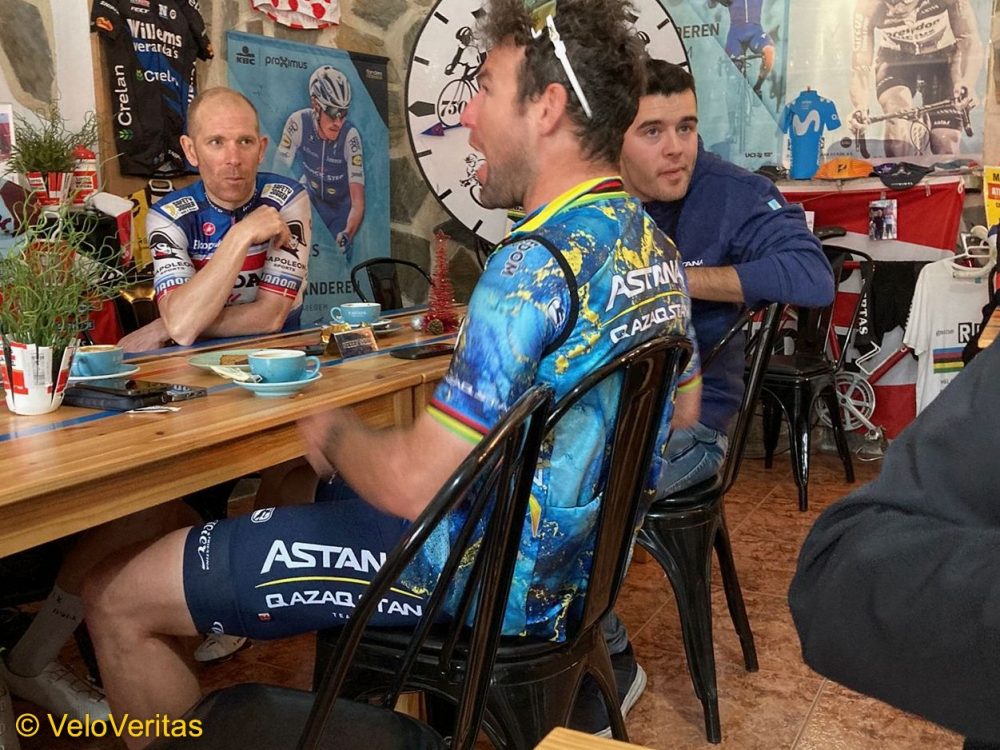
The whole team is for Cav?
“Yeah, all for Cav, for sure on the Tour – we also have Lutsenko who’s also going for stages and probably a few other guys too, but definitely on the days for a sprint it will be for Cav and I see him already having good strength, I’m really able to see he has good shape at this moment and I have huge confidence in him.
“You know him as a true sprinter, we know he’s probably the best sprinter out there, despite his age and because he is such an intelligent sprinter, it is like the key behind him.
“I will say that with the confidence of being a part of the super-strong team around him I’m very confident that we will line him up and deliver him to victories.”
Sprinters are known to be… not fragile, but things have to be just right for them.
“The thing is, being on this team has done him a lot of good because this team really embraced him coming here, they gave him full support without being ‘on his neck’.
“So, you know, he and we have a lot of freedom just to focus on what we’re best at, and try to win races, which is such a great opportunity because obviously in many other teams you will have to fight for your spot against other sprinters, maybe even against the GC guys too, with questions like how many support riders can you have in the Tour, how many can that guy have (GC or sprint workers), and then you have to prove yourself in the Spring races to get into the team.
“We don’t have any of that here and I’m really impressed with the atmosphere in the team.”
But the team is a solid sprint team, it’s not like you’ve got somebody going for GC, or going for the KOM… it’s a sprinter’s team, which there hasn’t really been for years.
“No, the thing is, especially in the Tour de France there is always a compromise.
“You would never go with a full sprint team – okay, at Quick-Step we actually did, but yeah, that’s also the advantage for us.”
What about the ‘Six Days’? Are they finished? Apart from Gent. It’s so sad.
“I would be the last one to call it off, because I really have such a big heart for the Six Days and I really miss them, you know.
“Especially now, I’m sharing the room with Mark, some nights, we just start talking about the Sixes in the past and how much we enjoyed them. He and I were sitting there as amateur riders watching the pros, eventually we became pro ourself and the joy to get a contract with the professional Six Days.
“The whole game around the Sixes was just amazing. For me, it’s pretty well vanished, hasn’t it? We know we have still a great Six Days in Gent, and Rotterdam is still holding up, they’re doing a great job. But you know, that whole World of Six Day racing, to come back to Ed, he was there together with Angus, my soigneur for years, and they were like part of the circus moving around.”
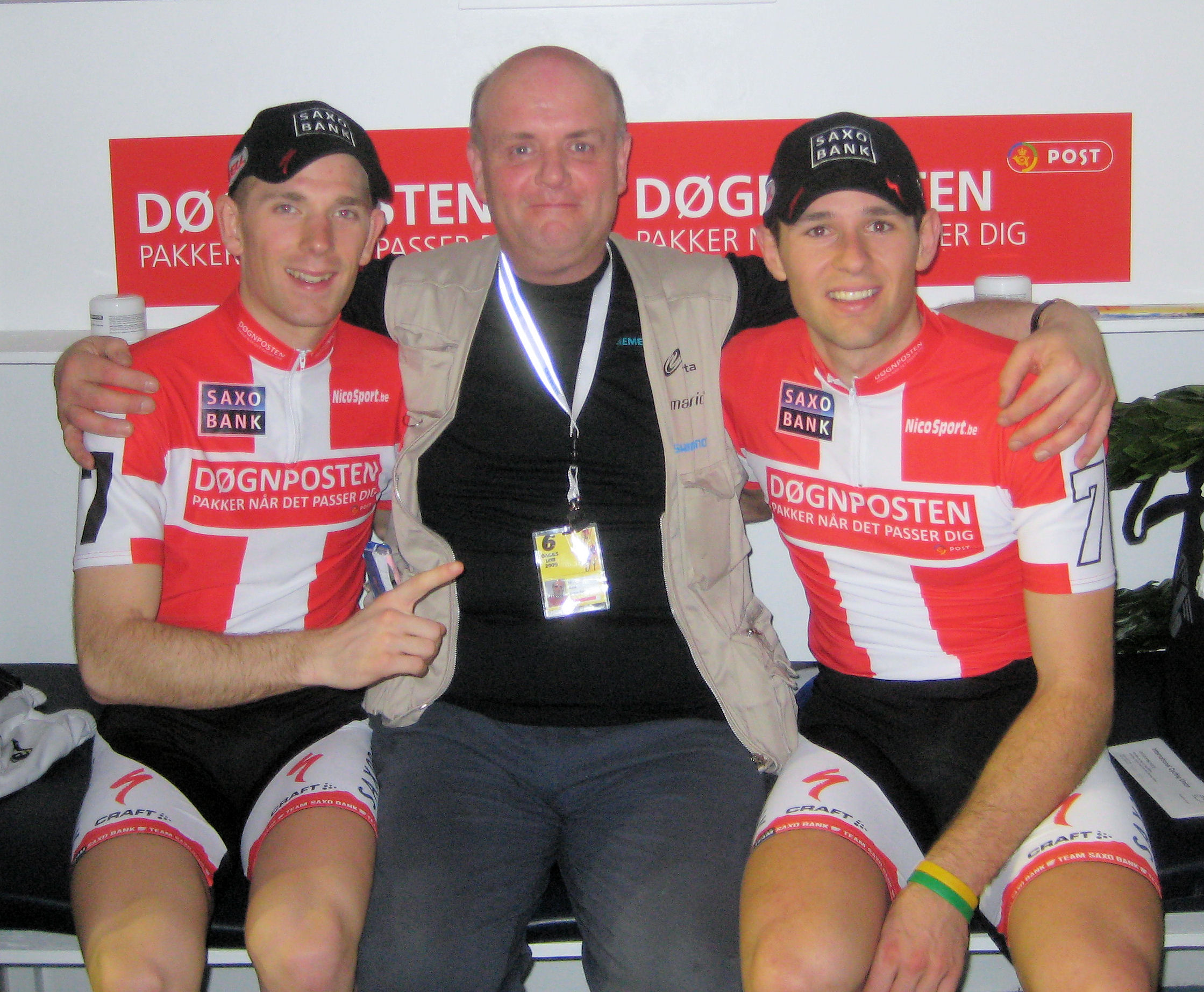
“As a rider, whenever you would join a Six Day you would be coming to people you knew, almost like a track family. There was a lot of history in it.
“So now we have events, you can call them Six Days but you know many of these traditional things have gone; you don’t have the same mechanic anymore, you don’t have that soigneur, it’s just different.
“Now it has become more like ‘just’ racing, which is also fine, I appreciate racing, but Six Days were something different, it was entertainment too. For me, it was a nice side thing to the World Cups and one-day events and World Championships.
“Some events have dropped to three days but this is also more like just racing, you don’t have that factor of the music and everything else. Ten,fifteen years ago you would have that group of Six Day riders who were moving around, you could say that maybe these guys would not win World Championships, but it was such a niche for them. They would be the best, like artists on a track.
“Nowadays, when you put up a field for any race, you don’t have those amazing Six Day riders anymore that could ride around with their closed eyes, they don’t exist anymore. Now it’s more like just pure performance.”
Do you think it’s too specialised?
“I don’t know. I think that’s what I see in the sport. The general level is just higher and higher, which makes it more specific. You have to go for a specific event whatever your capacity is.”
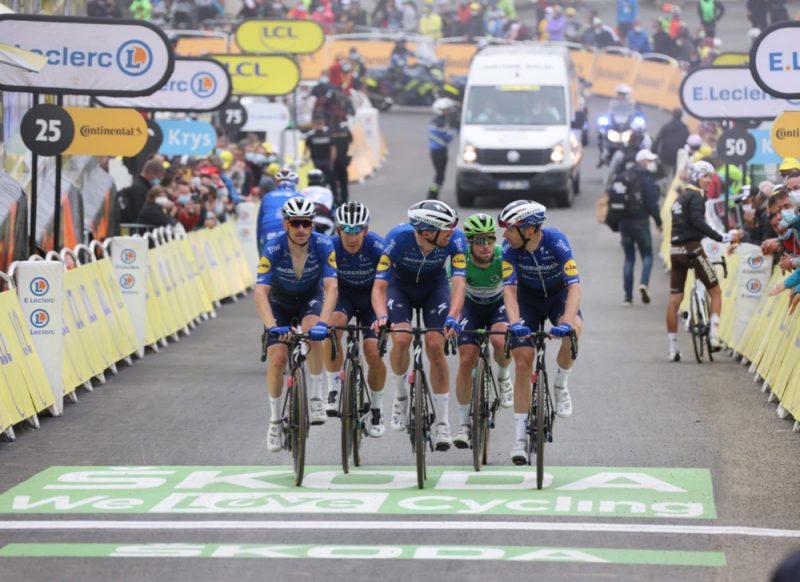
Will you go to the Olympic Games this year?
“Sure. The Olympics are a huge goal of mine and I am Olympic champion, so of course, I wouldn’t just leave that behind.
“That was a very important point for me, coming to Astana. The first time I spoke with Vino [Alexandr Vinokurov, Astana sports manager], I said to him ‘what are the chances for me to participate on the track at the Olympics?’ and he said ‘we’re gonna support you 100%.’ So that was part of my package.”
How long after the Tour de France are the track event at the Olympics?
“It’s three weeks, so that’s all right. I’m really happy that the team embraced it and give me the freedom.
“I think that also shows a lot of what the team is about. Many teams would just saying no, just because they can’t handle different things. But here, they are really relaxed and they also know what do they get from me.
“If I get my chance to do my Olympics, I have also to sacrifice myself for the team before and after I have my own chances.”
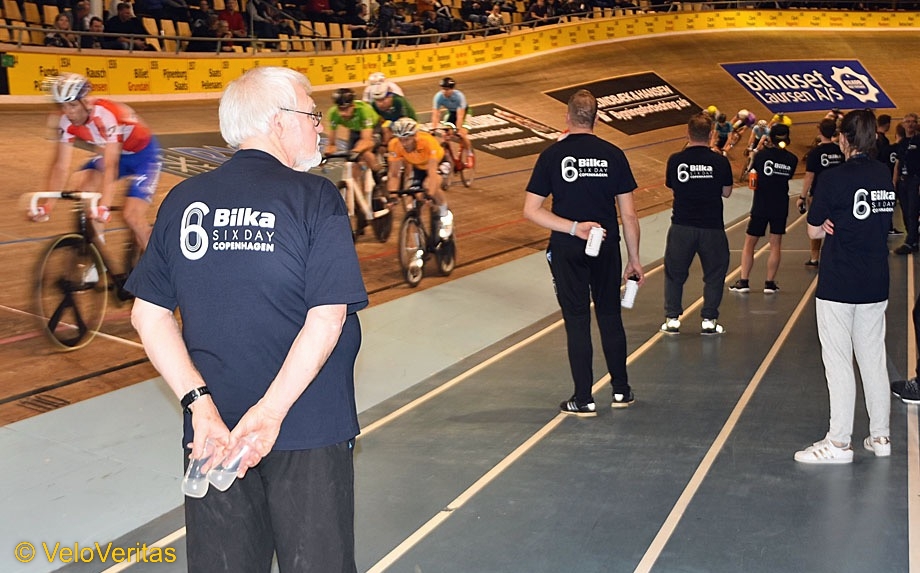
Do you think that’s maybe more than modern way though? Because you’ve got guys riding mountain bike, cyclo-cross, road and track.
“I don’t think that’s a modern thing, it comes very much down to the riders.
“I think it’s because if I have the capacity or the skills to do track cycling I will do it, and the same for Van der Poel and these guys, they like it and they can do it.”
Yes, there was always some guys, like Roger de Vlaeminck and track riders who were road sprinters, but there are riders now who talk about riding gravel during the season.
“Yeah, now there’s a greater flexibility. With track cycling, I was always lucky.
“Okay, I was also known as a track rider when I signed for teams but I always had quite good support. I also know many riders who never got to support to do track. So it’s a bit split, it’s sometimes also you’re lucky maybe to have a sponsor, who would push for you to do gravel, track or mountain bike.”
How do you feel when people like Kittel and Cavendish say you’re the best lead-out man in the World?
“Of course, I’m always flattered to get positive response and I enjoy my position, but to be honest I also know that you’re never better than your last sprint – the confidence is super important.
“The reason why I came here is because I know Mark has great confidence in me, he trusts me.
“We’ve seen that in the past that he and I work really well together so it could be that I’m not the best lead-out man on the day but I believe that for him, I am the best lead-out man because we have a very good relationship, and that’s very important.”
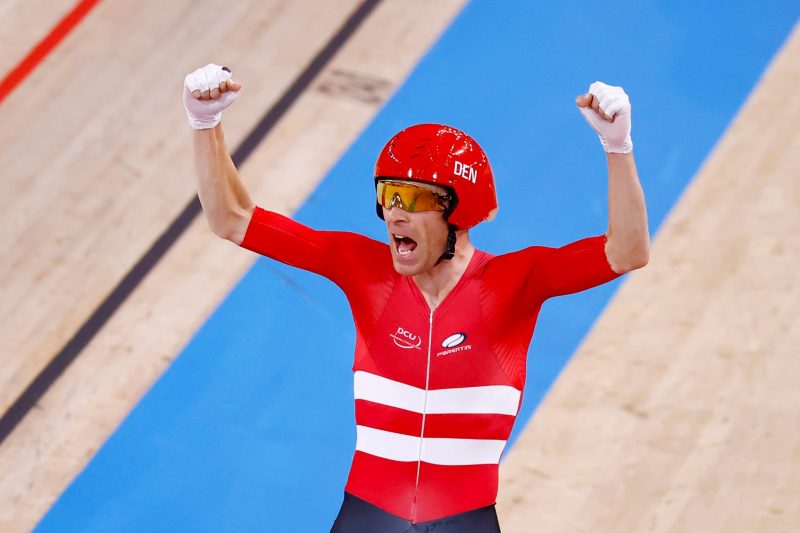
On the Tour de France would you share rooms with Cav?
“Yeah, I always prefer to share a room with my sprinter because that gives you another dimension or another tool to work close together.
“Sometimes it’s a bit weird if you are separated from your sprinter and you have to discuss things over breakfast or dinner.”
How many more years will you race? You’re 38 now?
“That’s a good question. I’m 38, I’ll be 39 in April 2024, so getting closer, I won’t be doing five more years.
“But at the moment I enjoy having the freedom to take it year by year so this could be my last year. If there’s something interesting coming up for 2025, let’s say a young sprinter, a new project, why not?
“I’m not settled, you know, but of course there has to be challenges up the road.”
You turned pro in 2009, you’ve seen a lot of changes since then – especially recently – in the last few years. The young guys coming up are different from when you were a young pro, it’s like a different game.
“100% it’s different. Yeah, but you know it’s way beyond cycling, I think it’s the modern World.
“So what you see with the young guys coming now, they come with huge confidence and they know everything beforehand, they come with with less respect for the guys who’s already here before, but I think this is what you see in all society.
“So in every group, young people will enter with this great confidence. When I was a pro, when I started I was almost afraid that somebody would say to me that I had entered the wrong room, but now the guys come like they know everything, the cycling is here for them. It is different. But imagine how much information they can get now, when I was a kid there wasn’t much.”
A big thanks to Michael for his time and to Vitalii Abramov of the Astana Qazaqstan team for arranging the interview.



